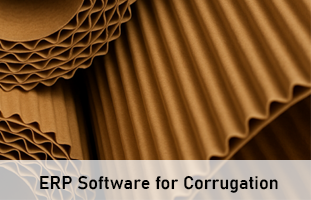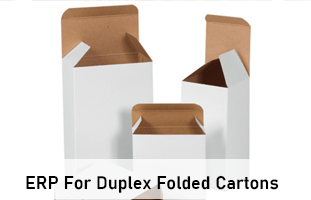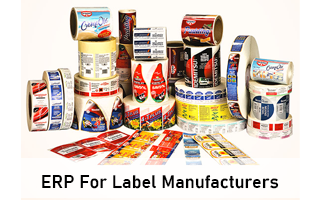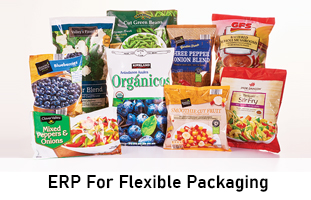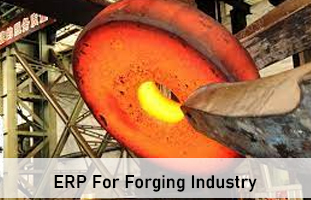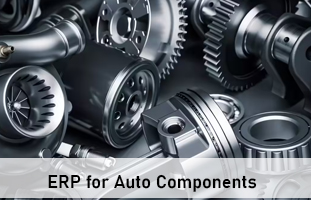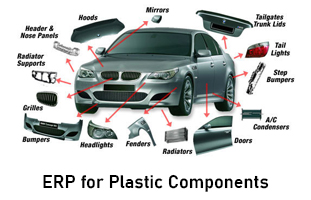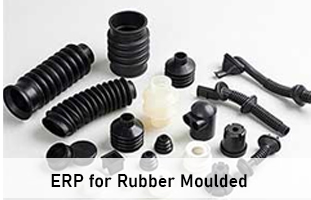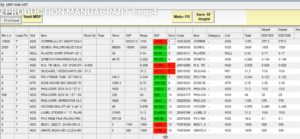Material Requirement Planning
 Material Storage Prevention and Scientific Planning using ERP Software Finsys
Material Storage Prevention and Scientific Planning using ERP Software Finsys
To support the need to reduce cost and time to market, greater emphasis is needed to control shop floor activities. For a well-organized manufacturing process, resulting elimination of bottleneck and waste, a reliable, flexible and user friendly production planning and control system is a must.
The planning engine of an ERP system, through closed loop MRP capability, generates planned production orders, based on the forecast demand, in respective monthly / weekly time buckets.
Our Youtube Video on this topic
After confirmation, full functional production orders, with adjustable routing and components, states what quantity of product should be manufactured and its scheduled date of production.
While generating the production order, the system takes cognizance of the various factors related to the order like Production time, Machine Capacity and Availability of materials and components.
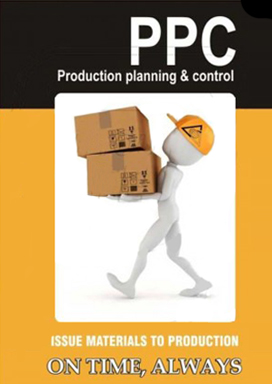 Based on this Planning, the subsequent functions need to be planned. For Instance, based on the availability of Materials the purchase of the materials short for production need to be initiated.
Based on this Planning, the subsequent functions need to be planned. For Instance, based on the availability of Materials the purchase of the materials short for production need to be initiated.
In the process above after the MRP Run, the relevant vendors are mailed the Delivery Schedules or Purchase Orders for the Materials required for production.
Such precise Material Planning, will further give the Inventory Management a Minimalism and hence induce “LEAN MANUFACTURING” practice in the business. This will further lead to Optimal Outputs from the given Input,hence increasing the Profit Margin of the Business.
Material Requirement Planning page demo PPT
click here
Logics MRP concept vs PO for actual Work order number
- One of the Missions of the Material Management should be
- No shortage of Material (on one hand),
- And
- No wastage of Material due to excess buying
- No wastage of Material due to non moving stock
- Minimum working capital (money) locked in Stock
- Methods : There are Two methods.
- Method 1 : SO wise
- Each PR, PO, MRR, Issue voucher linked to Customer Sales order, and you can see which Sales order , what status, and
- What not ordered ?
- Method 1 : SO wise
- What not received ?
- What not issued ?
- Row level review ?
- Method 2 : Combined factory level MRP
- Each Work order has a Bill of Material in the ERP
- Run the MRP for 1 day, / 1 week / 1 month / balance month / 1 ½ month for domestic purchases, and 2 ½ month or more, for long lead or imported items.
- Benefits of First method
- Each PR, PO, MRR, Issue voucher linked to Customer Sales order, and you can see which Sales order , what status, and
- What not ordered
- What not received
- Each PR, PO, MRR, Issue voucher linked to Customer Sales order, and you can see which Sales order , what status, and
- What not issued
- Row level review
- Demerits of First Method
- Data entry increases too much
- User make 10 PO instead of 1 for common item, effectively, number of Purchase orders rises. Creates confusion at Gate Entry … which PO to knock off ?
- User make 10 PR instead of 1 for common item, effectively, number of Purchase requisition rises. Need to map so many indents to one PO.
- Data entry increases too much
- User make 10 MRR instead of 1 for common item, effectively, number of MRR, Purchase vouchers, Quality Check,
- Accounting entries, GST entries all rise, average 5 times.
- Need more people in purchase department and accounts department, hence additional salary cost.
- Additional storage space for so many additional papers.
- Old stock is totally ignored.
- Since there is automatic pressure to make separate PO for each row of each Work order., and since if PO is not made, people think that the Purchase dept is not working….. they make PO,
- Even if stock was available
- And the truth is that usually 10% extra is purchased in every order to take care of contingencies
- Effectively cost of production goes up by 10%
- Problem of “Allocation of stock”
- If the Method 1 is used, each project is a separate Island. He wants allocation of stock.
- So, in ERP , you will have to do allocation, … That this material belongs to me / my project…. Creates problem for Finsys, for allocation and then later de-allocation. We in Finsys do not have such a facility,
- Effectively, more problems.
- Problem of “Issue of too much stock” on the Production floor “weeks in advance”
- Again, in the Method 1, each project is a separate Island.
- The project manager has no control on his stock unless he gets it issued.
- So, he does the simple thing, he gets issued every BOP of that Machine / work order… as soon as store gets it.
- Even if he needs it 2 months later.
- So, too much excess stock on the shop floor
- And that becomes invisible to the main stores ERP
- Now….. chances of Theft / wastage / breakage / etc
- Need of more and more almirah’s on the shop floor ( useless “Muda” )
-
- Need to buy a ball bearing, even if you have 100 in stock
- Merely because you already issued them or allocated them to old Work orders.
-
- New problem in Finsys PO and MRR
- You will need same PO, same item, to be populated in multiple rows against different Work orders.
- Similarly same problem in MRR. You will need same MRR, same item, to be populated in multiple rows against different Work orders.
- New problem in Finsys PO and MRR
- Need to buy a ball bearing, even if you have 100 in stock
- This is again not very smooth process
- Makes a lot of reports go wrong in Finsys
- Hence please avoid.
- Money
- Normally a 50 Crores turnover per annum company should have a stock in hand of say Rs 4 crores. For a long gestation product like a machine.
- In case of Model 1 is implemented, your stock will usually inflate to about Rs 8 Cr to Rs 10 crores. So, a large part of this becomes an “undesired investment”.
- DisAdvantage of Method 2
- None
- Advantage of Method 2
- MRP concept
- No need of multiple PO, for same item.
- No need of multiple PR, for same item.
- No need of multiple MRR, for same item.
- No need of more people in accounts department
- No need of excess store capacity in production dept
- No need of excess stock holding cost ( money investment ).
- What if….. Customer Auditor wants ?
- Show this video
- Explain him
- Tell him about Maruti, Toyota, Hyundai = Cars = FA
- Tell him about LG, Samsung = White Goods = FA
- What if….. Customer Auditor wants more ?
- Show him MRP live
- Explain him Digital excellence
- Instead of just manual and mix up
MRP Material Requirement Planning Shortage Planning in Finsys ERP
Make your Planning Better. Reduce Time required. Reduce effort. Make your Purchase Requirement more scientific and reliable
Finsys ERP,MRP,MRP2,ERP,Benefit of ERP,Shortage Planning,Jaipur Marriot,Automatic Material Planning,Best MRP for Small Business,Open Source MRP Software,MRP Software in Faridabad | For Indian SME Manufacturers,AI Business Plan Generator – Be Done In 15 Minutes
Our Youtube Video on this topic



